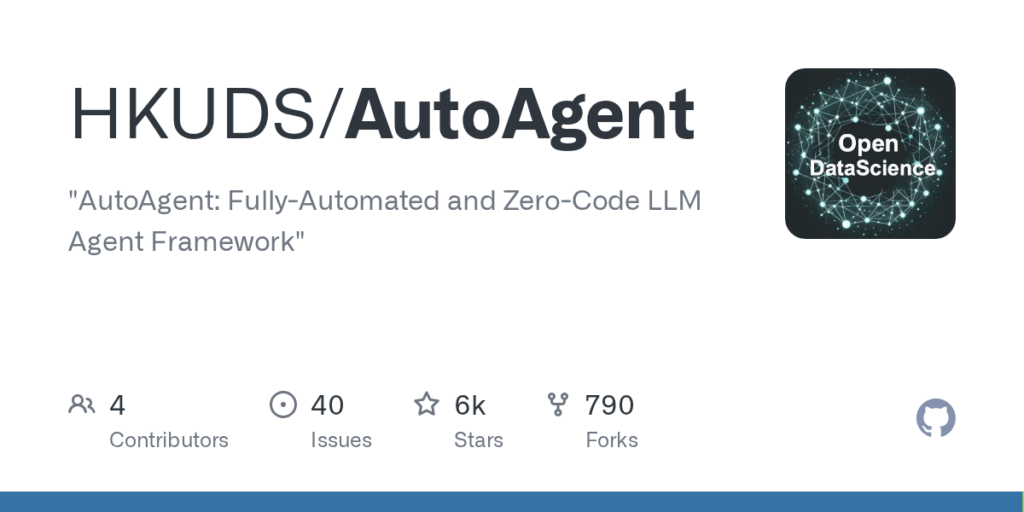AutoAgent
Basic Information
AutoAgent is an open source framework for building, deploying and running LLM-based agents and multi-agent systems using natural language instead of code. The project emphasizes fully automated agent creation and self-developing behavior, providing an out-of-the-box multi-agent user mode that aims to match Deep Research style assistants and achieves competitive scores on the GAIA benchmark. The repository includes CLI and Docker-based deployment options, support for many LLM providers via environment API keys, evaluation scripts for benchmarks, and tools for agent profiling, tool creation, workflow composition and self-managing vector storage. It is designed for users who want to generate, test and reproduce agent behaviors and research results with minimal engineering effort. Documentation, community channels and a paper are provided to support adoption.








